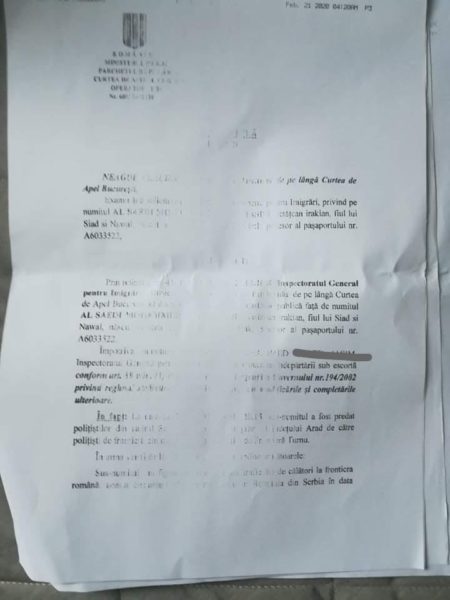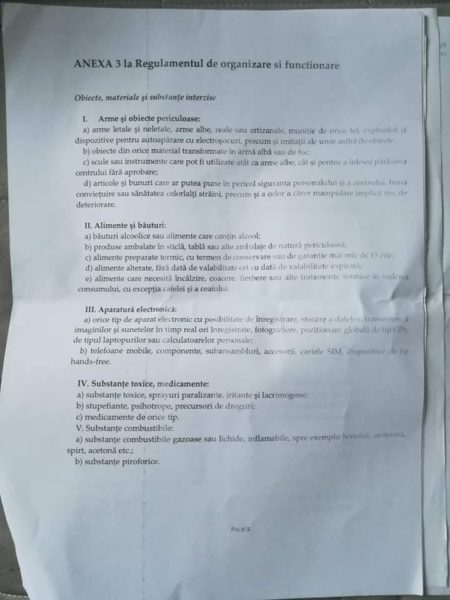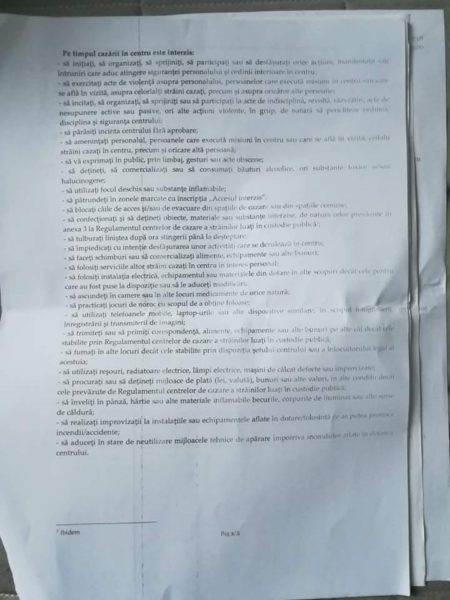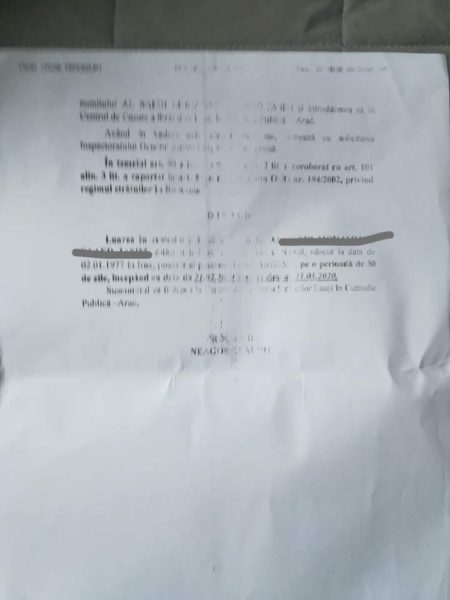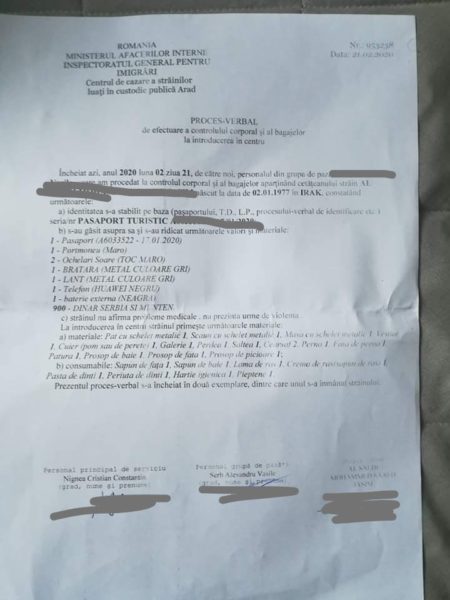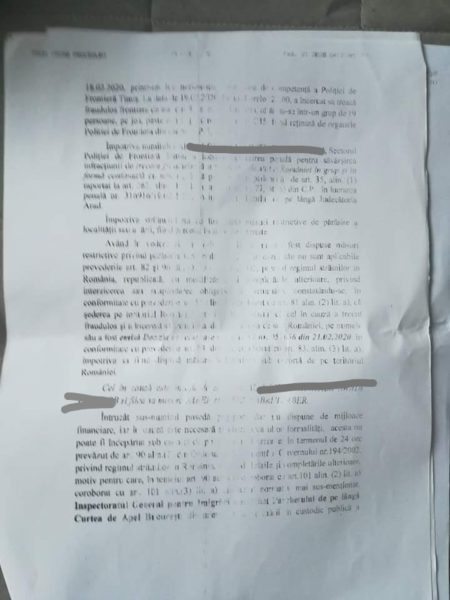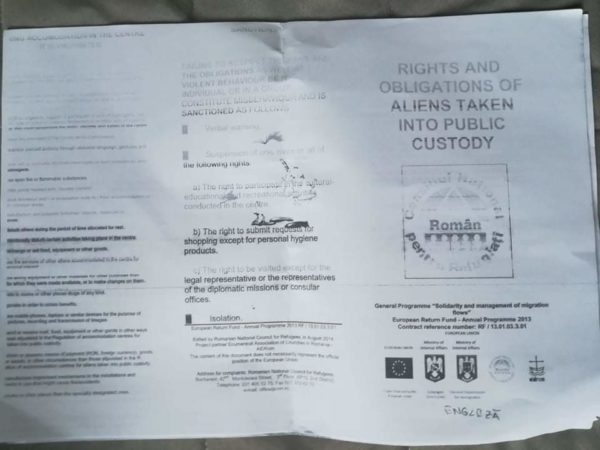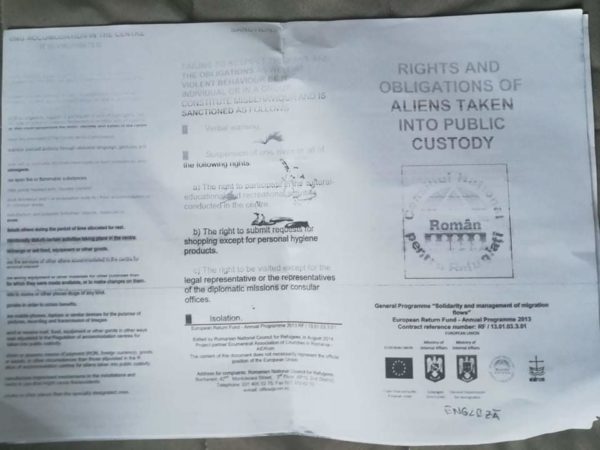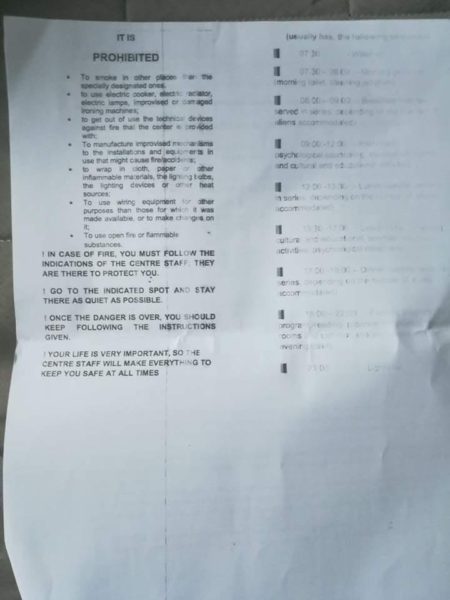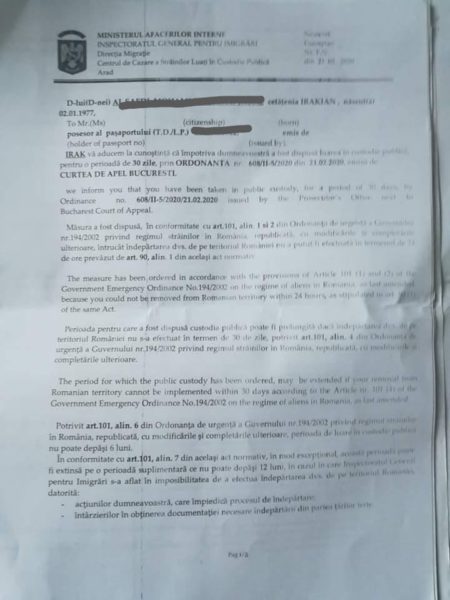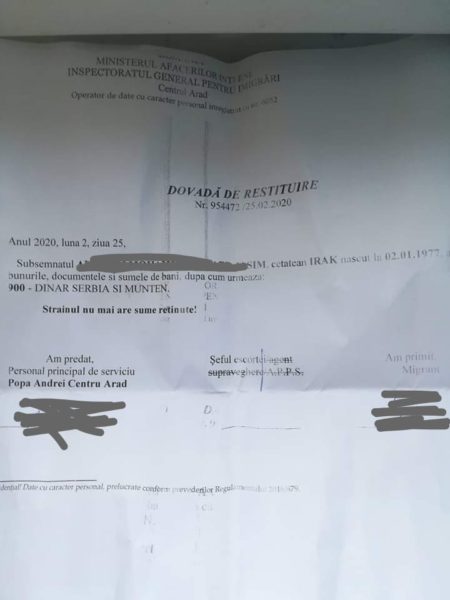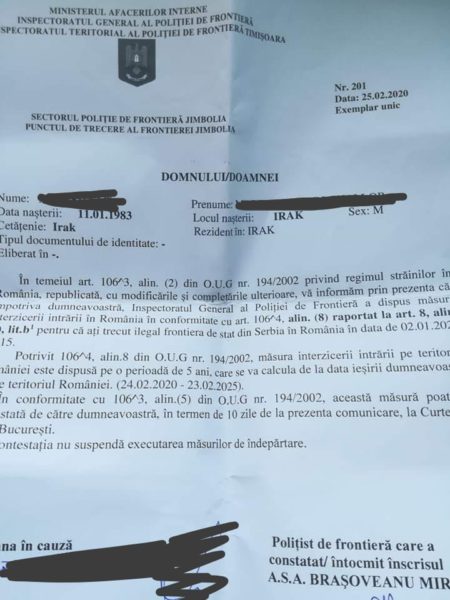In the late evening hours between the 17th and 18th of February, a group of 27 people attempted to move across the Serbian/Romanian border close to Kikinda (SRB). The group was divided in two sub-groups: one was composed of 17 people while the other group was comprised of 10. The group came from Syria, Iraq and Iran: there were seven women (two of whom were pregnant), five minors (a seven month old, a two-year-old, two seventeen-year-olds, and one sixteen-years-old) and fifteen men.
The two groups entered Romania at around 23:00, through two different locations. The group of ten was caught and detained by Romanian police after nly a short walk into the territory. Meanwhile the other group managed to transit further into the interior of the country. After two days of walking, on the morning of February 19th, they arrived to what was likely the city of Arad. The remaining group of seventeen people consisted of six women (two of whom were three and seven months pregnant), four minors (the seven month old, the two seventeen-year-olds, and the sixteen-years-old) and seven men (the oldest one of forty-one years old).
At this point, they decided to wait until 20:00 to start walking again until, after a while, they arrived at around 50 meters away from the Romanian/Hungarian border – “we could see it”. The respondent remarked that they could see something like a set of “yellow rocks”, which delineated the border between the two countries, in the middle of the fields.
Suddenly, a Romanian police car arrived, from which three officers came out pointing flashlights, shouting at the group not to move and to get down. According to the respondent, the group has been discovered through infrared binoculars. They obeyed without resistance and waited on the ground for ten minutes. After that, three vehicles – a car, a jeep-style car, and a van – with two police officers inside of each of them arrived. All officers were described as wearing blue uniforms. The group were then ushered into the van and the jeep (eight and nine within the two vehicles) but as there were not enough room for everyone, five of them were put in the trunks (two in the van and three in the jeep). After thirty minutes driving, they were taken to a nearby police station.
Once there, they were divided by gender and asked for their belongings: bags, mobile phones and money (around 200 EUR between each adult). Furthermore, they were patted down and their pictures and finger prints were taken. They had to sign several papers without knowing the meaning. There was a translator but he did not translate the documents and just shouted “You must sign”, threatening to beat them if they did not comply. Indeed, two of them were beaten with batons because they refused to sign.
The group expressed an intention to apply for asylum in Romania, but were denied this wish. Then, they were all placed in a “long” and locked room (described as a space with three layers of walls: one made of transparent glass, one obscured glass and the last made of iron). Because of this security system, the room seemed very dark. During their time in this room (around two day), they did not have access to food and medical care, although the pregnant women and two men who were beaten required medical assistance. Besides, six new people were also placed into the same room. They could only drink water from the small sink that was inside, next to the toilet.
The hygienic conditions were also described as very bad and there was a lack of any privacy. They receive no kind of information during all the time, just papers to sign, which the respondent described as “too much to remember”. In the end he described having to sign around ten different papers. At around, 20:00 on February 21st their bags, phones, and money were returned and the group was taken to another police station, where they arrived, being transported in a big van and a small one, after an hour driving.
In this second police station they encountered the same procedure (pictures, finger prints, asked for their belongings, including rings and necklaces). They waited there from 21:00 until 5:00 on 22nd February, signing other documents (at around midnight), this time without any translators. After this, the officers returned their belongings and told them that they would be taken to the nearest camp. Once there, they noticed that this “camp” really looked like a prison. Here, they had to give for the third time finger prints, besides their personal effects. They were detained here for next six days.
They were divided into different cells, around 4 to 5 people each (families remained together). “The camp was composed by three floors, we could hear voices of other people but we couldn’t see them. We met a person that was there since six months, and he doesn’t know why”. During their detainment, the two pregnant women were denied the possibility to receive medical assistance. The oldest man – 41 years old – needed his medicine, which had been confiscated and never returned during these six days.
They received three meals per days, small portions of bad food. The respondent remarked about his impression that there was the chemical camphor inside the food. After several attempts by the group to receive information about the nature of their detention, the security personnel repeatedly answered:
“You eat the food and you will talk to the manager of the camp”
“We feel like criminals”.
On the sixth day (February 27th ), one of the pregnant women fainted. The respondent did not know if this was the reason, but after that the entire group of 27 was released (the other original group of 10 who were caught first at the Serbian/Romanian border were also taken to this camp). Their bags, mobile phones and money were returned, and they also received a bottle of water and chocolate, but with the recommendation not to eat it immediately as a marker that this was all they would receive.
Then, they were asked to sign other documents, but the entire group refused to do it. Then, police decided to sign the paper themselves. This paper, with fake signature, was a prohibition to come back to Romania for the next year and a half.
A bus with three Romanian police officers took them (and other 10 people) to the Serbian border, close to the city of Kikinda, in order to turn them over to the Serbian police. Here they were asked to pay a 50 EUR fee for trying to cross the border, with fifteen days of imprisonment in case of refusal.
After the payment, the group split up and walked back.
